- Home
- Perry Rhodan
Action Division Three Page 2
Action Division Three Read online
Page 2
Since the Springers had the power in their hands their demands were met. At least until Terra switched to another instrument and began to play louder music. In their own mule-headed way the Terrans were not about to recognize somebody else's demands, a priori, however reasonable or unreasonable they might be. So they carried on their own interstellar commerce and promptly got into the Springers' hair. The result was a concrete example of defiance having its advantages over conventional forms of negotiation. Terra continued to carry on its own commerce with ever-increasing volume and in the face of the highly effective alliance between Terra and Arkon the Springers had no other recourse but to gnash their teeth as they bitterly pulled back from one domain after the other.
Of course their retreat was not quite as simple as all that. The Springers began to retaliate in a manner that was typical of their ways and style of living. They would lie in wait and whenever they caught a Terran ship they considered to be inferior to theirs they would attack and destroy it. Which led them to concentrate principally on space freighters, the kind of vessels that carried most of Terra's commerce. To be sure, there were times when the Springers suffered bitter defeats in this game because the Terrans were an ingenious lot. Many a Springer captain waiting with his ship in the deeps of space for his next victim ran into a bloody encounter with a battle cruiser which he had mistaken for a freighter. The Springers were no match for Terran cruisers. In such duels no quarter was given to either contender and they usually ended with one victor and a residual gas cloud. Whenever the Terranian vessel happened to be a warship the Springers usually took the role of the gas cloud.
It was a merciless form of partisan warfare which was carried on in the far reaches of the void, far from the broad avenues of interstellar politics. It was difficult to catch the Springers to pin them down because they lived on their ships. With but few exceptions they were space nomads.
Terra had adjusted itself to the fact that this war might go on for several centuries. Its warships were stationed almost motionlessly in space, acting as relay stations, having other purposes than to merely stand on guard against the Springer threat. Yet even they had not been able to prevent the destruction of the Carolina.
Every instinct in Ron Landry fought against merely ending this operation with a simple report to Nike Quinto, such as: "It was another Springer attack-no trace."
He was fairly certain that Quinto expected more than that from him. On the sensor instruments he could make out the expanded cloud of gas particles that had once been the Carolina. He was familiar with data concerning the freighter due to several hours of hypno-schooling he had obtained in the room behind Nike Quinto's office. It was one of the usual spherical ships, 100-meter diameter, 300,000 tons, equipped with hypertransition propulsion. It was half freighter and half passenger ship. This flight had carried 25 passengers among whom was one Lyn Trenton, Superintendent of the Terran Mission on Arkon, returning to his post after a leave of absence. As for armament: comparatively speaking, none.
It was this ship that the Springers had surprised from ambush. They had simply destroyed it without compunction.
We can't simply let them get away with it, thought Ron Landry. We have to make them pay for this!
Of course wishing alone was not going to do it. Landry went a step further than another commander might have done in his place. After all his other investigations he then proceeded to have the area analyzed for traces of fuel exhaust. Since the Springer ships used a form of propulsion which left radiation trails, they couldn't have gone a kilometer in any direction without leaving a trail, which at least would indicate the direction they had come from or where they had disappeared to.
But nothing of this nature was discovered. The Springers had apparently dissolved into nothingness.
• • •
Since Ron Landry had only had a few hours to select his crew, he did not know the man who stood before him. He only knew that his name was Marty Nolan and that he was a chemical analyst.
When Nolan spoke it was with a note of timidity. "Sir, you may not believe what I have to say but I'm pretty sure of the facts."
Ron waved him to a chair. "Have a seat, Marty," he said. "Then let's get two things straight. First, you can call me Ron-I don't think that'll lessen your respect for authority; and secondly, by all means speak frankly."
Marty appeared to appreciate Landry's unconventionality. He seemed to become a bit more relaxed. He was a small, lean man with large intelligent eyes and dark hair that was much too long. His manner of looking at a person pointed to an inferiority complex.
"I have completely measured the gas cloud, sir... I mean Ron... Actually I'm trying out a new method. If we're able to exactly determine its density as well as its volume, then we can also measure its mass, right?"
Ron Landry smiled faintly at Marty's questioning expression. "I follow you, Marty."
"Alright, then assume that I know the density precisely-with no errors. That I've measured the volume of the gas mass within plus or minus 5% of accuracy." Again he looked questioningly at Ron.
"I'm still with you," nodded Ron encouragingly.
"So in this case I've done all that," Marty continued, "and the results are-that the gas cloud has a mass of 278,000 tons."
Landry stiffened to new attention. "The Carolina's registered mass is 298,000 tons," he said.
It was Marty's turn to nod. "I know. So I said to myself: I've got a plus or minus 5% variation here. That gives an upper limit of 292,000 tons and not 298,000."
Ron got to his feet. Without looking at Marty he asked: "Are you sure that your error of margin isn't any greater than that?"
"Absolutely, sir. Pardon me-Ron. In fact it's a smaller margin than that: plus or minus 3.8%. I just wanted a good safety factor."
Marty was startled as Ron swung about abruptly to ask him: "What do you conclude from this observation?"
Marty opened his hands as though to make an offering to Ron on a platter. "That one of the lifeboats has escaped the disaster, Ron. The mass differential fits in fairly accurately. A lifeboat of that type weighs between 18000 and 22000 tons. The Carolina had three of them on board."
Landry was biting his lips in concentration. "Marty, do you realize the kind of action that drives us into?" he asked. "Please understand me: I don't doubt your good intentions or your ability-but before we send out a report on this I want you to search your conscience once more. Are those measurements absolutely reliable?"
Marty replied without hesitation. "I'm as sure of them as the fact that two plus two is four."
Landry gave him a faintly ironic smile. "That's putting it rather plainly, Marty." Suddenly he became serious, muttering to himself: "Out there... somewhere... a lone lifeboat... but where? Where?"
3/ CASTAWAYS IN SPACE
Cruiser ROYAL IRISH to Relay 14: Do you have any indications that a piloted spacecraft escaped from the disaster area after the explosion? Over...
Relay 14 to cruiser ROYAL IRISH. No such indication observed. Why? Do you have hopes? Over...
Cruiser ROYAL IRISH to Relay 14: Yes. Over and out.
• • •
Somehow they had escaped. Somehow the flaming and bursting hot fireball of destruction had spared them and concentrated only on the ship itself, which fell away swiftly behind them. Somehow they had shot out of the launching lock at the very moment that it was engulfed by the raging inferno that was the Carolina.
Their reason had failed them during those few seconds of terror. It seemed impossible to put the events in proportion and proper sequence. Their memories failed them when they began to ask themselves what had really happened.
But now they were out of it. The glowing gas ball that had once been the Carolina was far behind them. They were safe, thought Lyn Trenton, and that was the main point after all.
The hairbreadth escape of the lifeboat at the last moment had been a shock to Richard Silligan's nerves. For some time he had merely allowed the small spacecraft to shoot
straight ahead into the void before he remembered his duties and started to check if at least everything. on board the lifeboat was in order.
Which turned out not to be the case. Of course all equipment absolutely necessary for survival was functioning perfectly, such as the oxygen recycling and air-conditioning systems. There were also enough provisions for a space trip of several months' duration. However, tremendous electromagnetic discharges in the attack zone had so thoroughly damaged the two transmitters on board that any repairs with the means at hand were out of the question.
This meant that the ship was cut off from the interstellar communications network. Silligan kept a lookout for the other two lifeboats that had been ready for take off in the Carolina's launch bay but he couldn't find a trace of them. Either they had gone off in some other direction or they had not been able to escape in time from the exploding mother ship.
Richard's next task was to decide on a course and destination. He didn't want to make the decision without a consensus of opinion from his three passengers, as well as from the corporal who had piloted them during the first few moments of the flight.
The ship's control room was the passenger cabin as well. Arranged in a semicircle behind the pilot's seat and flight console were three rows of comfortable seats. Above the pilot's seat the largest of the viewscreens had been installed.
Silligan turned around. Naturally he knew Lyn Trenton, the highest Terran official on Arkon. He had seen Dynah Langmuir before and remembered her because she had made quite an impression on him. But he couldn't recall having seen the third passenger before. He was a small elderly man who did not appear to feel comfortable in his formal suit, which was obviously new. It seemed as though this kind of apparel didn't go with his nature and that he wished he might go back to something more casual.
"Well, gentlemen-and lady," he began without preamble, "it seems we have to figure out a destination. Does anyone have a suggestion? Corp. Laughlin-that includes you."
The first reaction to the question was from Lyn Trenton, who gave him a superior and patronizing smile that was touched with sarcasm. Richard felt like jumping up and punching him but he forced himself to remain seated with a poker-faced expression.
Trenton spoke calmly and politely. "Isn't that asking a little too much of us, Captain?" he asked. "How could we know what this sector of space looks like, what the chances are here or what kind of range this lifeboat has?"
He was the kind who would give a man a higher title than he had so that he could be amused by the other's struggle and perhaps his reluctance to admit that he had not yet come up that far.
Silligan replied promptly but the hostility in his words was obvious. "In the first place I am only a lieutenant, in the second place it might be possible that our other two passengers are a bit more familiar with space than you are, wouldn't you say?"
He was glad he had said it. It was a form of retaliation and he was pleased that he had defended himself-even though Trenton did not show the slightest reaction. Richard's gaze turned next to Dynah Langmuir, indicating that he wanted to hear her opinion.
Dynah forced a faint smile and shook her head. "Sorry, Lieutenant, I'm as green at this as Mr. Trenton."
Trenton turned to her and gave her a friendly nod.
They're in collusion, thought Silligan irritably. "Alright," he growled,"then perhaps..."
The little man in the uncomfortable suit understood the hesitant invitation to speak. "My name is Ezekiel Dunlop Rykher," he said, in such a querulous tone of voice that it was almost comical. "From Lupine, Oregon," he added. "I won this trip in a contest. If I'd used my head I'd have had no part in the damned thing but you know how it is. They keep pushing you into it." He looked at Richard directly. "As to your question... I think we're close to the Toghma System, aren't we? The way I see it we should take as few risks as possible and fly there, wouldn't you say?"
Silligan was flabbergasted as was everyone else present, except for Lyn Trenton. Who would have expected that someone named Ezekiel Dunlop Rykher from Lupine, Oregon, would know exactly where he was out here halfway to Arkon?
After recovering from his surprise, Richard answered: "You're very well oriented, Mr. Rykher. Our present location..."
Rykher interrupted, "Call me Ez like everybody else does," he grumbled. "And you're Dick, right? Dick Silligan."
Richard nodded. "OK, Ez. You've got your bearings alright. From here to Toghma it's about 1100 astronomical units or roughly 6.5 light-days. The system has four planets, of which the second is inhabited. It's called Ghama. Ghama is a water world with primitive native intelligences. There's a Terran representative there for ISW-Intercosmic Social Welfare-and a big Springer base for trading operations. That's about all we know about Toghma and Ghama."
Ez Rykher's brows went up. "Springers, you say? Then maybe we'd better pick out another place. If I know Terran politics, our own base there is probably pretty small. Couldn't do very much if the Springers captured us."
Lyn Trenton laughed suddenly. "That's rich!" he exclaimed. "The Springers capture us? Why should they do that? Why get themselves into such a diplomatic hassle? My good man, please don't make Ms. Langmuir nervous with your pirate stories!" He patted Dynah's arm reassuringly. Richard was vexed to see that she didn't seem to mind it.
Ez Rykher had remained calm. "Seems to me you're pretty far behind the times," he answered Trenton, speaking as casually as if he were discussing the laying capacity of his hens. "Everybody knows that the Springers attack and destroy our freighters. If they do that then why shouldn't they grab up five defenseless Terrans?" Then he turned to Silligan as though he didn't consider Trenton worth talking to. "How far is it from here to the next likely place?"
Richard didn't have to ponder the question. "Too far for us," he answered. "It's seven light-years."
Ez Rykher wrinkled his brow in rejection. "This ship only has quantum jets that'll bring to 99-point something or other speol." He seemed to be speaking more to himself. "Catherine won't hold out that long. Well, for my part, in spite of everything, I'm in favor of flying to Ghama."
Richard nodded. "Cpl. Laughlin?" he asked.
"Agreed, sir."
Richard swung his chair around and leaned over the keyboard. He was waiting for Lyn Trenton to make a protest about the decision since he'd not been asked for a vote on it, and he was ready with a suitable reply. But Lyn Trenton was smarter than he had assumed. He made no complaint and thus spared himself the embarrassment of the perfect squelch.
"Laughlin, set course for Ghama!" he ordered.
• • •
The blue globe of Ghama was glowing on the viewscreen. The glittering surface areas of its tremendous oceans amidst the dark spots of many small islands were all clearly discernible. It was a strangely beautiful sight but the only one who seemed to really relish it was Ez Rykher.
"Well, at least this way," he grumbled, "I might really be getting something out of that stupid contest I think Arkon would have been a bit boring for me, but this Ghama layout is something else again!"
The small spacecraft had covered the 1100 astronomical units in slightly more than 30 hours by ship-time reckoning. The propulsion system had worked flawlessly and the effects of time contraction at relative light-speed were not as apparent to the passengers as it would have been to a stationary observer in space.
When the Toghma System had come into view, Richard Silligan had turned over the flight controls to Cpl. Laughlin so that he could try to at least get one of the ship's radio receivers back in operation. As Rykher had already observed, any landing on Ghama involved a not inconsiderable element of risk. The Springers had their eyes everywhere.
The native intelligences were dependent on them and consequently subservient to them. Richard had no idea which of the many islands might harbor the Terran settlement. He hoped to be able to repair the receiver and listen in on radio traffic over Ghama.
However, this proved to be a false hope. The equipment was too sev
erely damaged. Lyn Trenton had been watching Richard's efforts attentively and when the latter finally admitted his failure he had a ready remark to make.
"You can't help it, Lieutenant. On Terra they ought to give our space officers better training in electronics."
"Don't be funny!" Richard growled at him. Even an electronics chief couldn't repair these receivers."
Ez Rykhers grumbling voice was heard from the background. But of course you know, Dick, there are some people who can repair a thing like that just with their big mouth!"
Trenton turned around and for the first time Richard noted that he was irritated. It gave Richard some satisfaction even though his more practical side told him it would he rough going on Ghama for five castaways if they were all going to he getting into each other's hair-what with the imminent dangers of an alien environment and the threat of the Springers too.
During the entire flight Dynah Langmuir had remained silent Lyn had attempted to draw her into a conversation but she had answered him in such an absent manner that he had finally given up. He lowered the back of his seat and slept awhile but Dynah, Ez and the two crew members had remained awake.
During those hours when there had been nothing to do, Ez Rykher had carried on an extensive conversation with Richard. He had told him about his farm in Lupine, of his wife Catherine and his two sons, one of whom was attending one of Terra's space academies. Richard had listened attentively and with the passage of time it seemed to him that his present situation and surroundings were becoming progressively less real. The man had a way of describing things so vividly that one could almost forget his own environment Richard had imagined that he could even smell the Oregon spruce and catch the perfume of the meadowlands while hearing the humming of bees and the lowing of cattle. There were moments, finally, when he wondered what he was doing out here en route to Toghma, 18000 light-years from Earth.

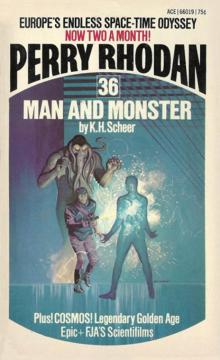 Man and Monster
Man and Monster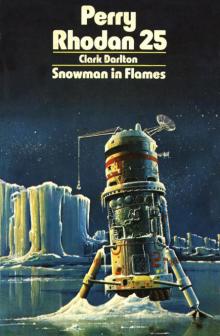 Snowman in Flames
Snowman in Flames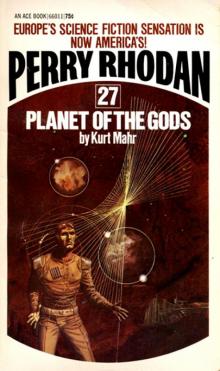 Planet of the Gods
Planet of the Gods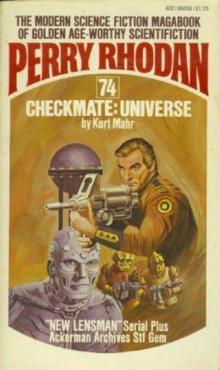 Checkmate Universe
Checkmate Universe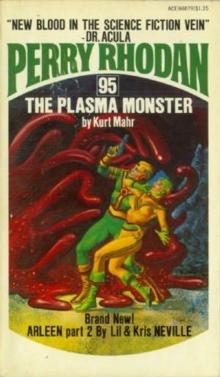 The Plasma Monster
The Plasma Monster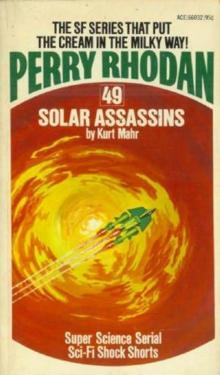 Solar Assassins
Solar Assassins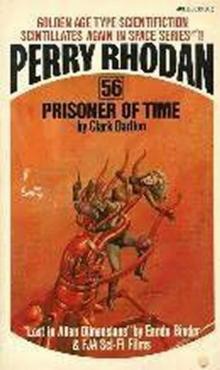 Prisoner of Time
Prisoner of Time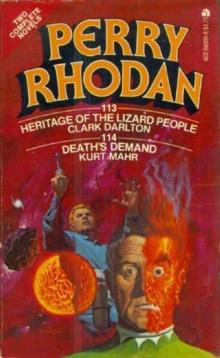 Death's Demand
Death's Demand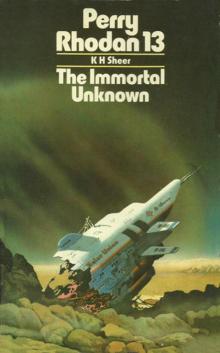 The Immortal Unknown
The Immortal Unknown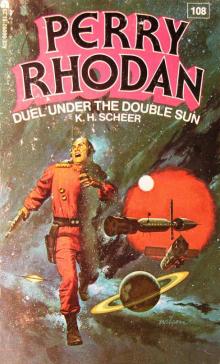 Duel Under the Double Sun
Duel Under the Double Sun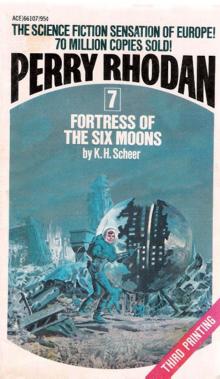 Fortress of the Six Moons
Fortress of the Six Moons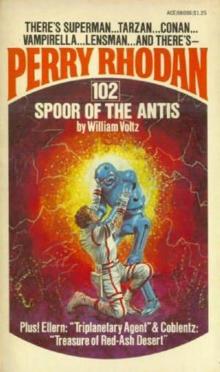 Spoor of the Antis
Spoor of the Antis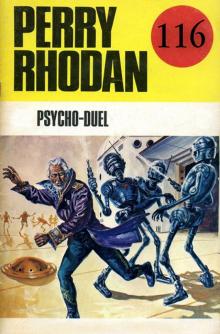 The Psycho-Duel
The Psycho-Duel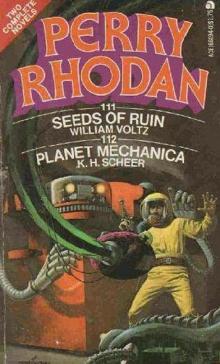 Planet Mechanica
Planet Mechanica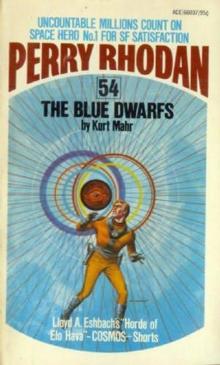 The Blue Dwarfs
The Blue Dwarfs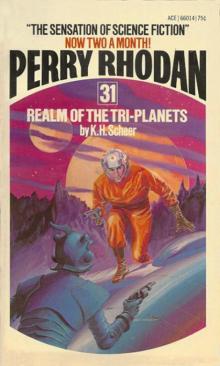 Realm of the Tri-Planets
Realm of the Tri-Planets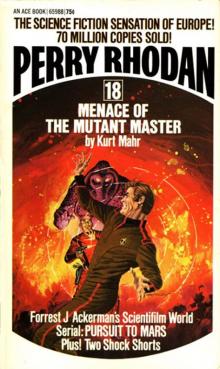 Menace of the Mutant Master
Menace of the Mutant Master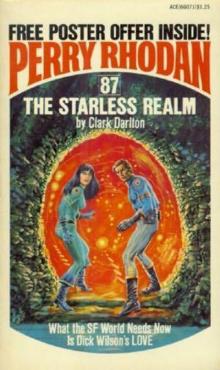 The Starless Realm
The Starless Realm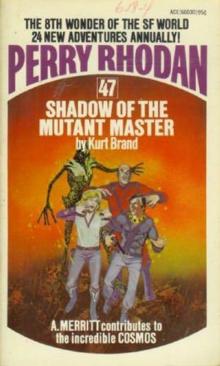 Shadow of the Mutant Master
Shadow of the Mutant Master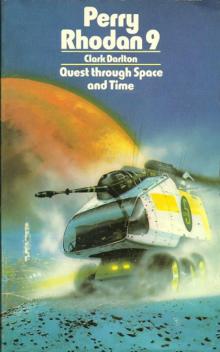 Quest Through Space And Time
Quest Through Space And Time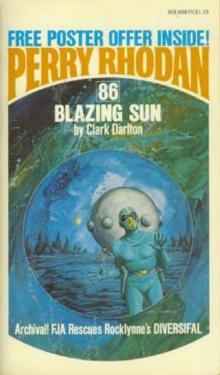 Blazing Sun
Blazing Sun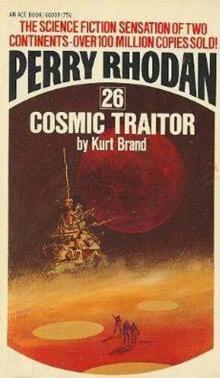 Cosmic Traitor
Cosmic Traitor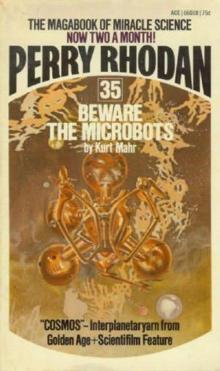 Beware the Microbots
Beware the Microbots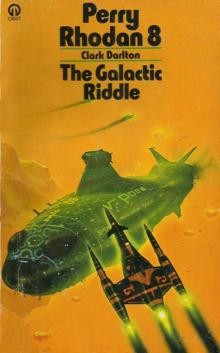 The Galactic Riddle
The Galactic Riddle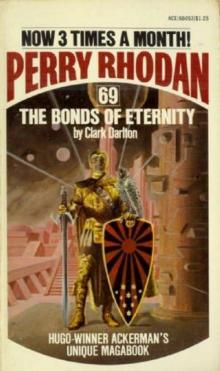 The Bonds of Eternity
The Bonds of Eternity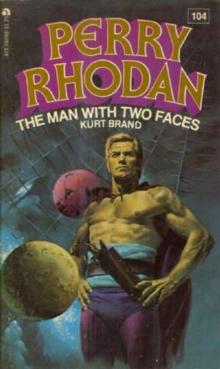 The Man With Two Faces
The Man With Two Faces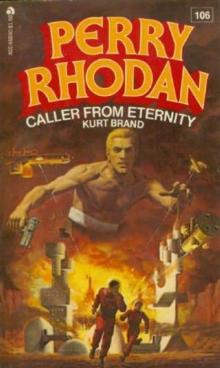 Caller from Eternity
Caller from Eternity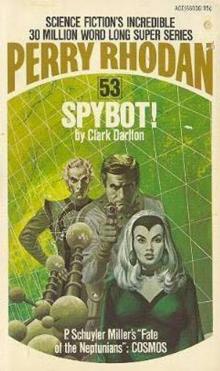 Spybot!
Spybot!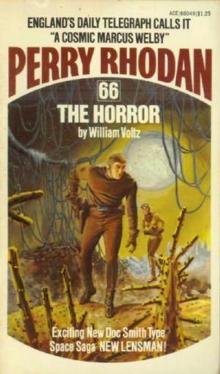 The Horror
The Horror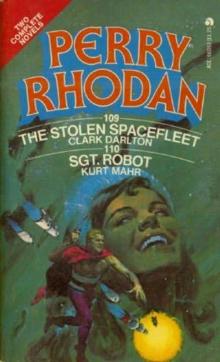 The Stolen Spacefleet
The Stolen Spacefleet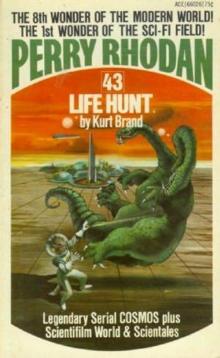 Life Hunt
Life Hunt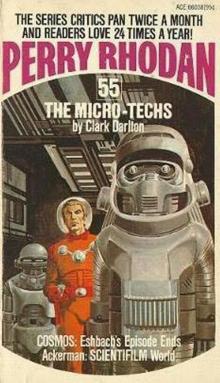 The Micro-Techs
The Micro-Techs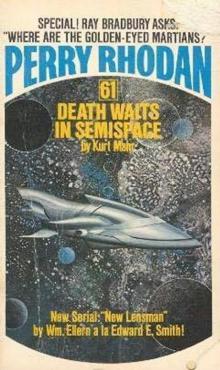 Death Waits in Semispace
Death Waits in Semispace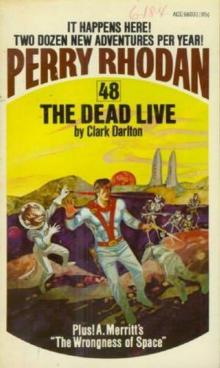 The Dead Live
The Dead Live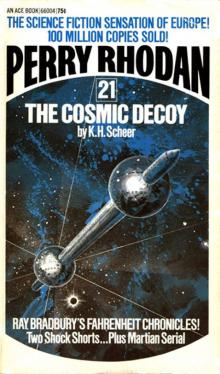 The Cosmic Decoy
The Cosmic Decoy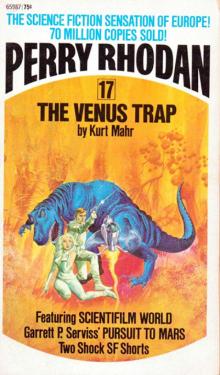 The Venus Trap
The Venus Trap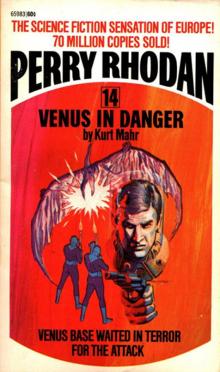 Venus in Danger
Venus in Danger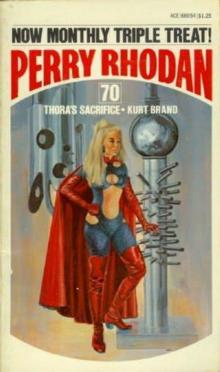 Thora's Sacrifice
Thora's Sacrifice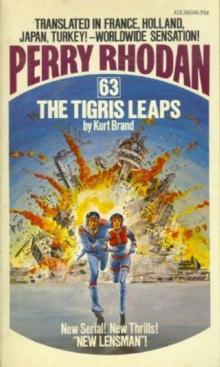 The Tigris Leaps
The Tigris Leaps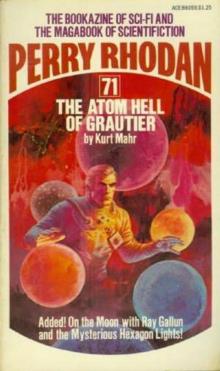 The Atom Hell of Grautier
The Atom Hell of Grautier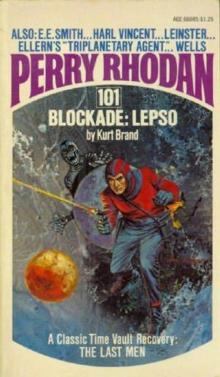 Blockade: Lepso
Blockade: Lepso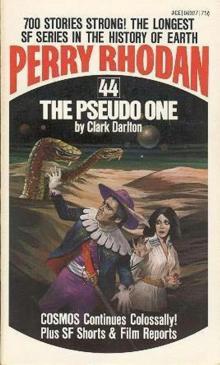 The Pseudo One
The Pseudo One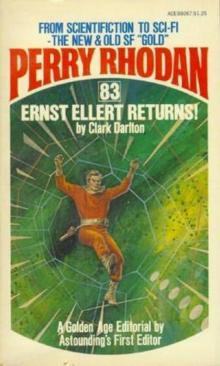 Ernst Ellert Returns
Ernst Ellert Returns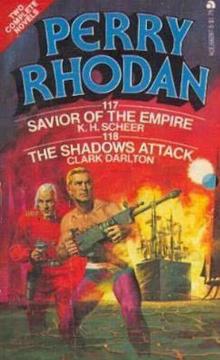 Savior Of The Empire
Savior Of The Empire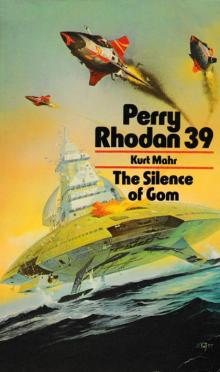 The Silence of Gom
The Silence of Gom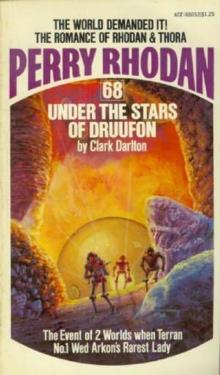 Under the Stars of Druufon
Under the Stars of Druufon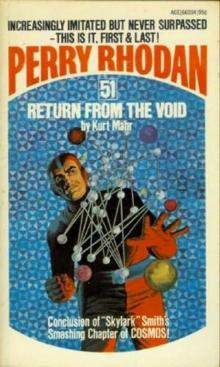 Return from The Void
Return from The Void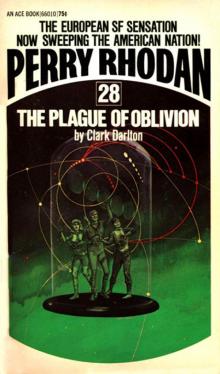 The Plague of Oblivion
The Plague of Oblivion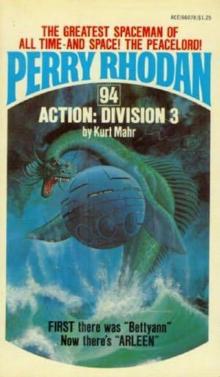 Action Division Three
Action Division Three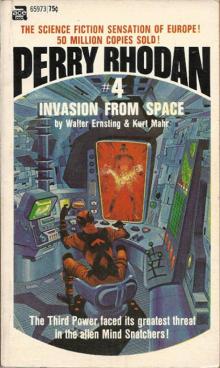 Invasion From Space
Invasion From Space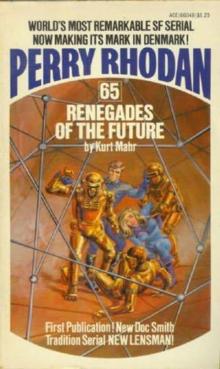 Renegades of the Future
Renegades of the Future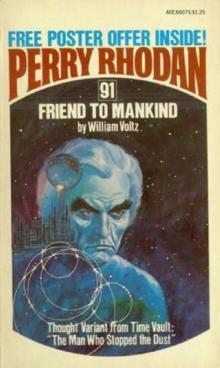 Friend to Mankind
Friend to Mankind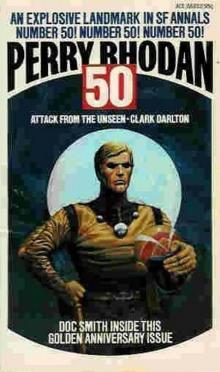 Attack from the Unseen
Attack from the Unseen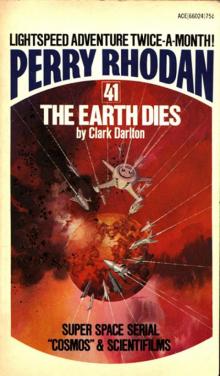 The Earth Dies
The Earth Dies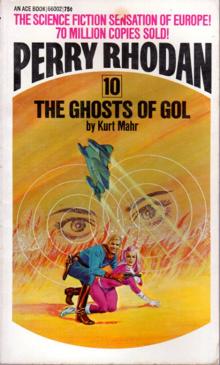 The Ghosts of Gol
The Ghosts of Gol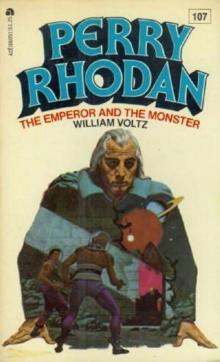 The Emperor and the Monster
The Emperor and the Monster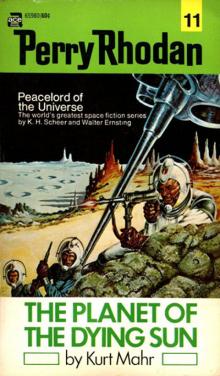 The Planet of the Dying Sun
The Planet of the Dying Sun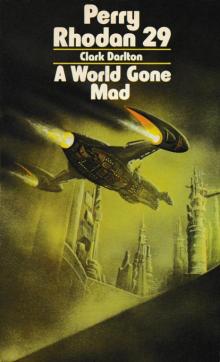 A World Gone Mad
A World Gone Mad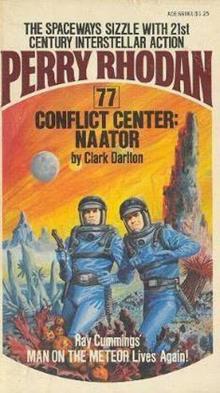 Conflict Center Naator
Conflict Center Naator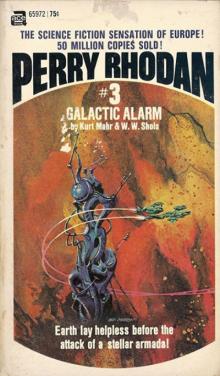 Galactic Alarm
Galactic Alarm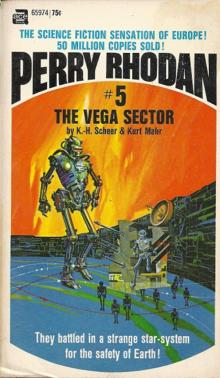 The Vega Sector
The Vega Sector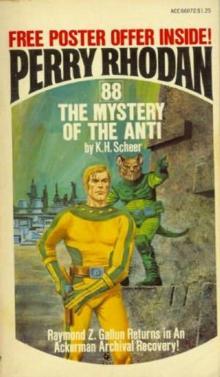 Mystery of the Anti
Mystery of the Anti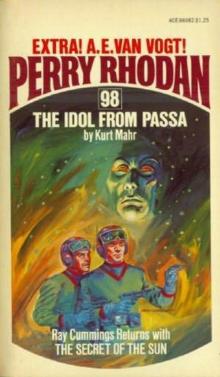 The Idol from Passa
The Idol from Passa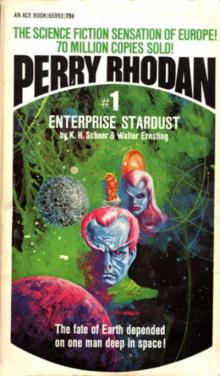 Enterprise Stardust
Enterprise Stardust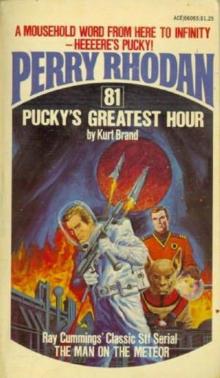 Pucky's Grestest Hour
Pucky's Grestest Hour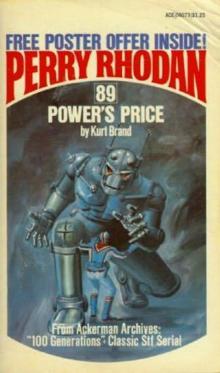 Power's Price
Power's Price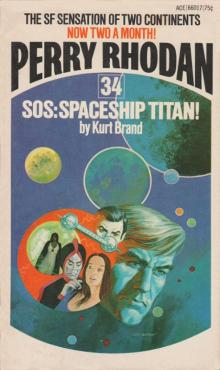 SOS Spaceship Titan
SOS Spaceship Titan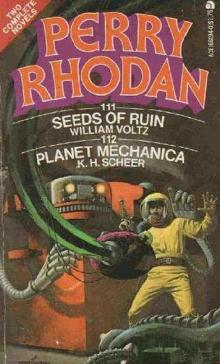 Seeds of Ruin
Seeds of Ruin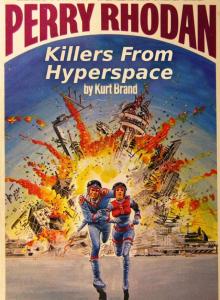 Killers From Hyperspace
Killers From Hyperspace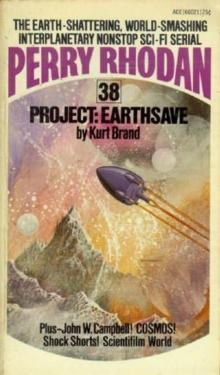 Project Earthsave
Project Earthsave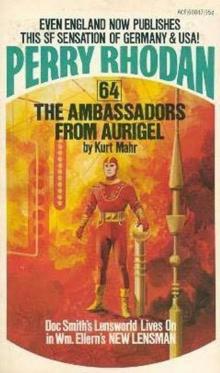 The Ambassadors from Aurigel
The Ambassadors from Aurigel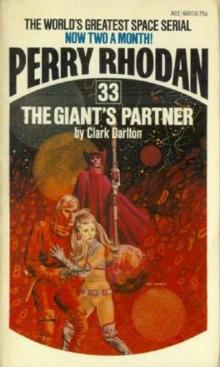 The Giant's Partner
The Giant's Partner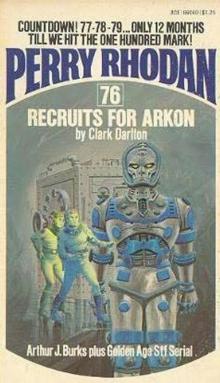 Recruits for Arkon
Recruits for Arkon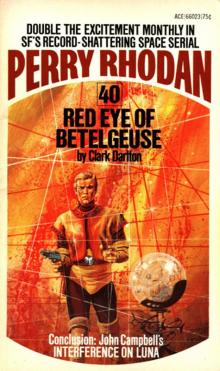 Red Eye of Betelguese
Red Eye of Betelguese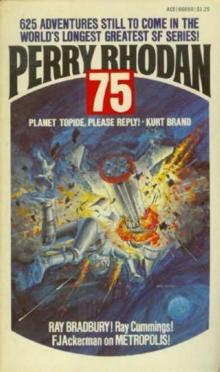 Planet Topide Please Reply
Planet Topide Please Reply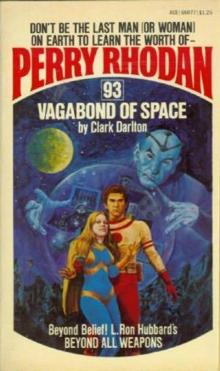 Vagabond of Space
Vagabond of Space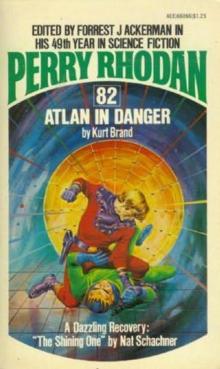 Atlan in Danger
Atlan in Danger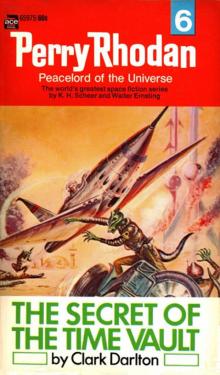 The Secret of the Time Vault
The Secret of the Time Vault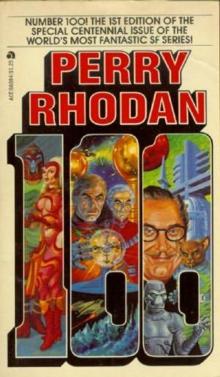 Desert of Death's Domain
Desert of Death's Domain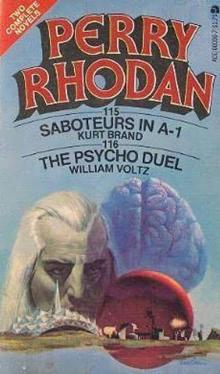 Saboteurs in A-1
Saboteurs in A-1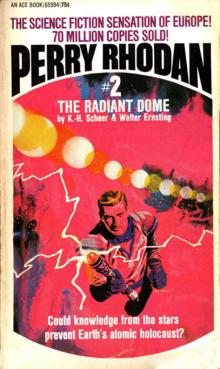 The Radiant Dome
The Radiant Dome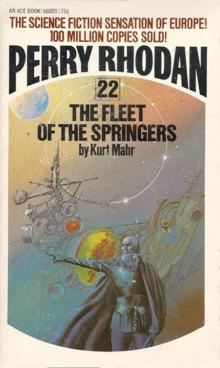 The Fleet of the Springers
The Fleet of the Springers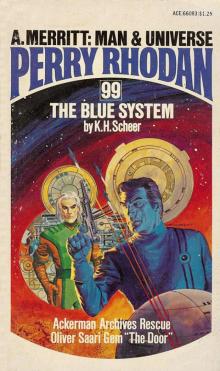 The Blue System
The Blue System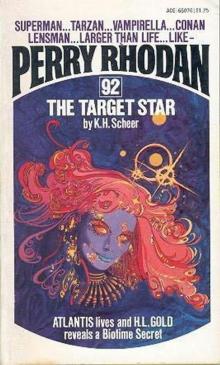 The Target Star
The Target Star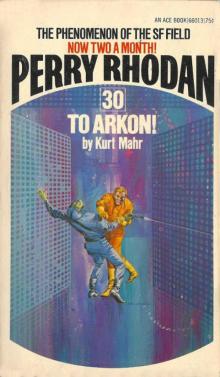 To Arkon!
To Arkon!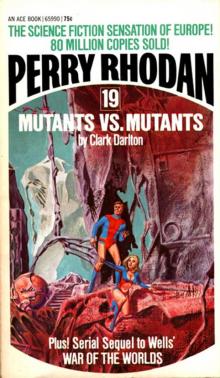 Mutants Vs Mutants
Mutants Vs Mutants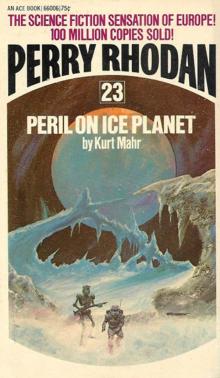 Peril on Ice Planet
Peril on Ice Planet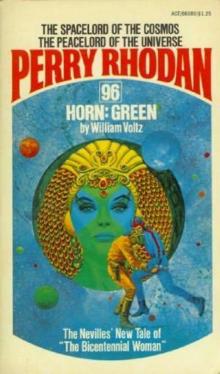 Horn: Green
Horn: Green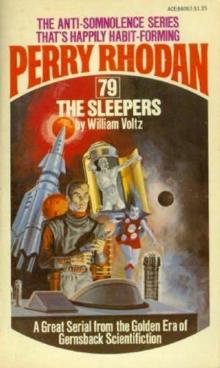 The Sleepers
The Sleepers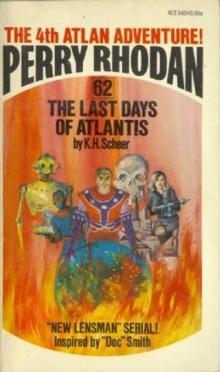 The Last Days of Atlantis
The Last Days of Atlantis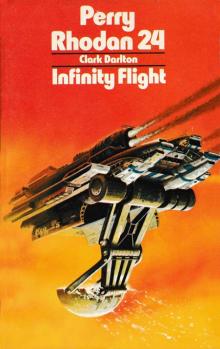 Infinity Flight
Infinity Flight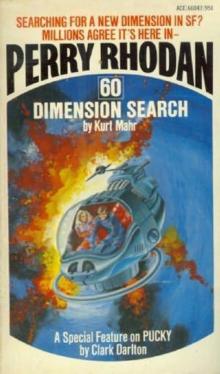 Dimension Search
Dimension Search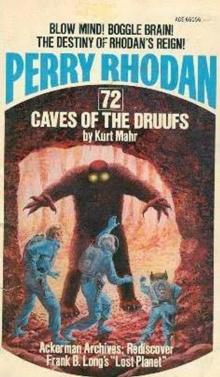 Caves of the Druufs
Caves of the Druufs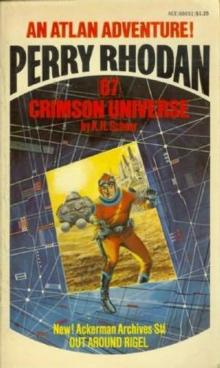 Crimson Universe
Crimson Universe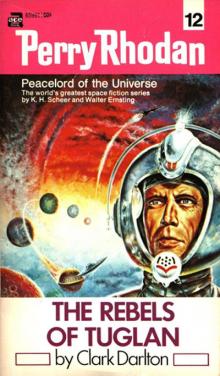 The Rebels of Tuglan
The Rebels of Tuglan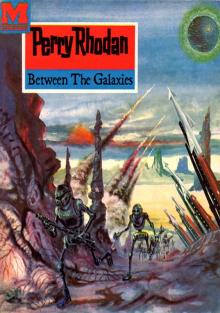 Between The Galaxies
Between The Galaxies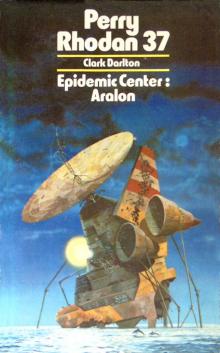 Epidemic Center Aralon
Epidemic Center Aralon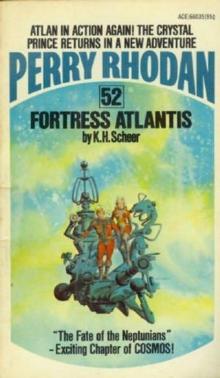 Fortress Atlantis
Fortress Atlantis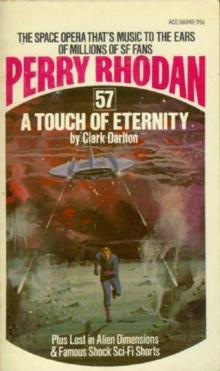 A Touch of Eternity
A Touch of Eternity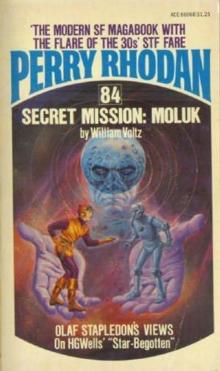 Secret Mission Moluk
Secret Mission Moluk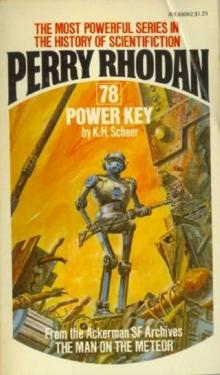 Power Key
Power Key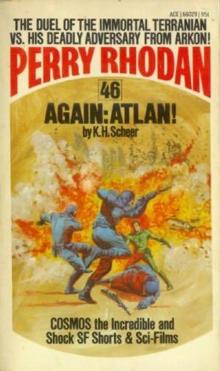 Again Atlan
Again Atlan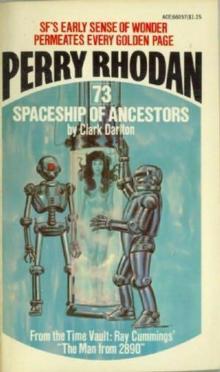 Spaceship of Ancestors
Spaceship of Ancestors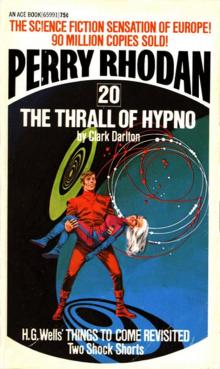 The Thrall of Hypno
The Thrall of Hypno